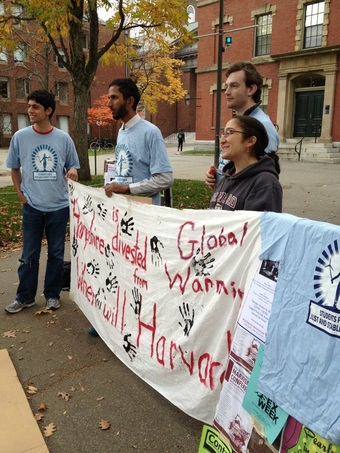|
I was drawn to biology from a young age. There was a time not too long ago that Animal Planet and Discovery Channel didn’t have any reality television. In fact they were predominantly science channels. Animal Planet was full of nature documentaries. Sure they ranged in educational value, but they were none fascinating for a child and a teenager to watch. I had the strong initial interest in dinosaurs that most children go through, and mine has lasted to this day. When I realized I didn’t want to be veterinarian as an undergraduate, ecology made the most sense to me. Both out of sheer interest and because I wanted to work on important problems. To me this logically meant working on the environment, because you would be hard pressed to find bigger or more serious issues than there.
When you look at environmental problems, they are sometimes difficult to classify. Is protecting the rain forest while simultaneously insuring that local human populations are treated humanely an issue of land use practices, humanitarianism, or both? (I tend to favor both) In no place is this classification issue more evident than with climate change. Climate change is the mother of all environmental issues. You would be hard pressed not to find an issue that it doesn’t exacerbate, or doesn’t worsen it. Whether its pollution of the atmosphere through CO2 release, loss of sequestration opportunities through forest habitat loss, or undermining conservation biology it is prevalent in the environmental sciences. As such I was drawn to it, because if you can solve it you can simultaneously protect so many other different things. Climate change will drastically impact the biosphere, and humans are part of that. More than that it has already impacted me with my lifetime, and will have consequences for my family in the future. I have already begun to put consideration into where I will ultimately settle down based on climate change impacts. One of the most important ways to fight it is to protect ecosystems like forests from being destroyed, and in turn lose important allies to stabilize atmospheric carbon. These systems also help to decrease the severity of the current extinction, which I suppose after spending so many years interested in dinosaurs matters a lot to me. This post was inspired by a memory. I was working on the book and I was reminded of a conversation I had with a very close cousin a few years ago. I was asked why I even bothered since the odds seem so against any action climate change. While I don’t remember the exact answer at the time, as someone raised as a fighter I have an answer I’m comfortable with giving now. When I think about the impacts climate change will on worldwide biodiversity and the livability of different regions of the planet, my answer to that question is this: "I do it because if I fail, I need to be able to look my children in the eye and say that I fought as hard as I possibly could to stop it."
0 Comments
Your comment will be posted after it is approved.
Leave a Reply. |
AuthorChristopher Round is a doctoral candidate at George Mason University studying information technology and climate policy. Archives
July 2019
Categories |

 RSS Feed
RSS Feed
